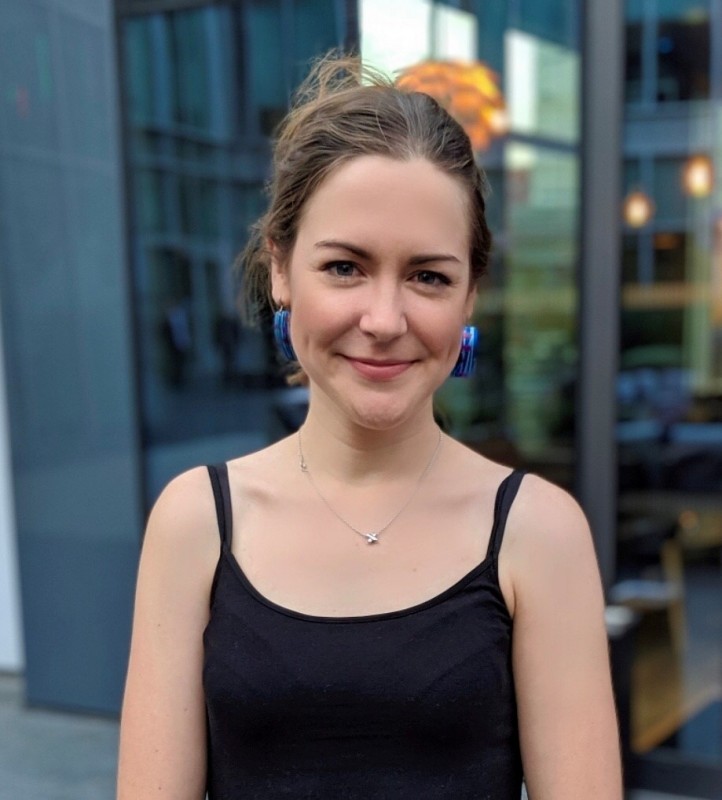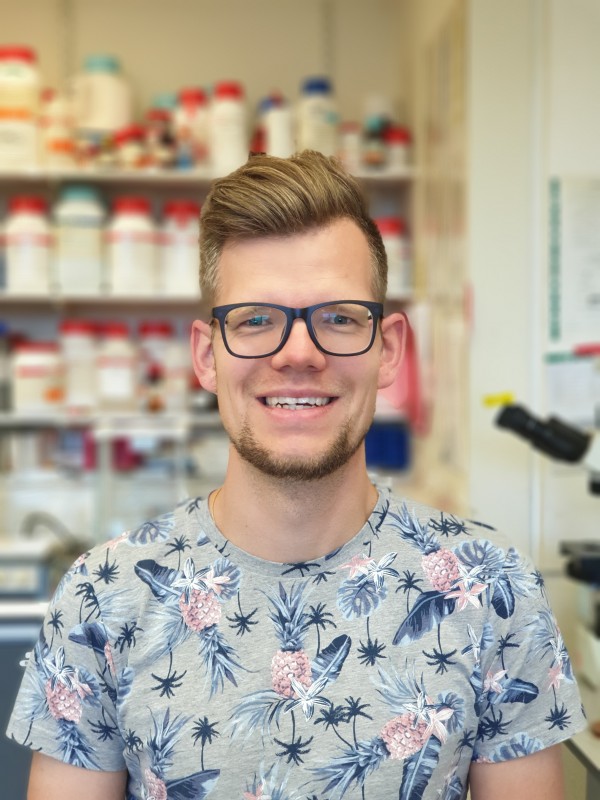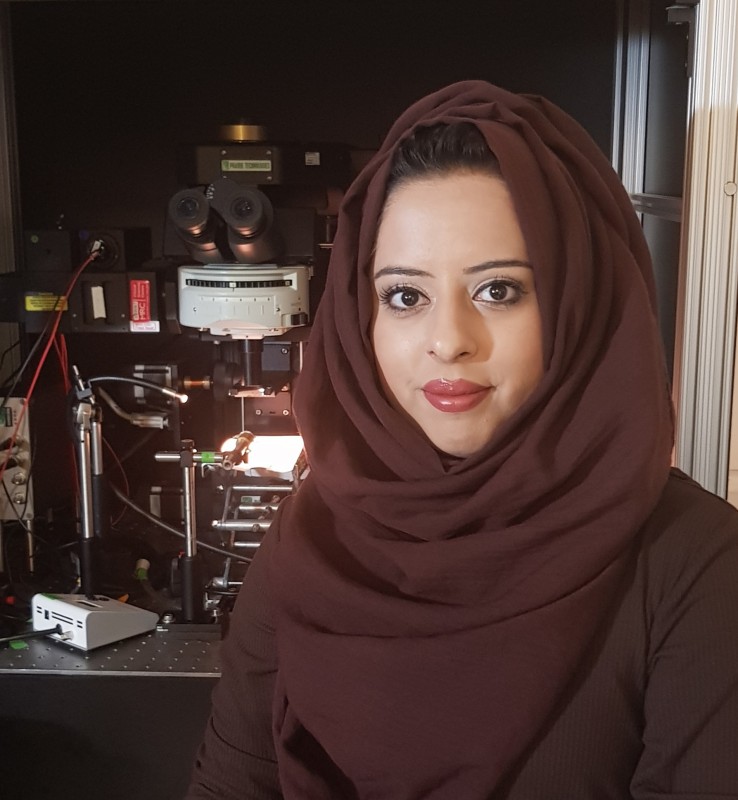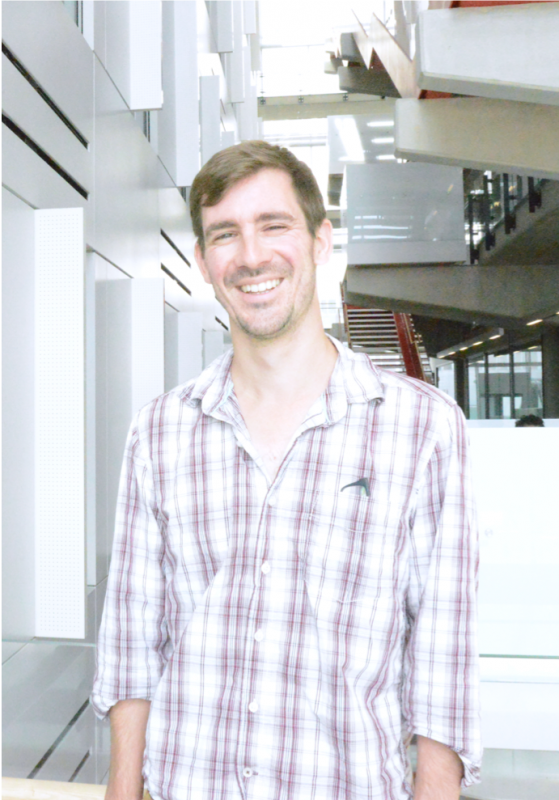By Sophie Arthur
September 20, 2019
Time to read: 6 minutes

As part of Post-doc Appreciation Week, we asked some of our current post-docs to share an insight into their current research & their advice and tips to their fellow and future post-docs. Here is what they had to say:
 Ben Wiggins, Inflammation & Obesity group
Ben Wiggins, Inflammation & Obesity group
Our lab is focussed on the aryl hydrocarbon receptor, a molecule capable of sensing the cellular environment and directing immune responses accordingly. We study the role this receptor plays in the adipose tissue, investigating its impacts in both health and in metabolic disease.
As a relatively new postdoc (around 9 months since starting), my advice would be to always encourage patience and self-belief. I had a touch of imposter syndrome starting out where I felt I didn’t deserve the role and couldn’t live up to expectation, still feeling no different to a PhD student. However, given time and a with great supportive lab around me, I soon came to trust myself and see my experience start to come through, and now feel I am doing some of my best work. To anyone starting out who is worried about this, I know others who have experienced the same thing, and I am sure this is normal for a lot of people. It takes time to settle anywhere, but before you know it I’m sure you will be thriving.
 Lucy Penfold, Cellular Stress group
Lucy Penfold, Cellular Stress group
In the UK, about 1 in 8 men will get prostate cancer at some point in their lives. Current treatments focus on either activating or inhibiting key proteins within cells that are known to suppress or cause tumour growth. It is hoped that greater understanding of these interactions will lead to improvements in future treatments. We have developed novel genetic mouse models to study the roles of two protein kinases in prostate cancer: CAMKK2 and AMPK. CAMKK2 is a protein coding gene up-regulated in the disease and AMPK is an important enzyme that senses energy status within a cell. AMPK is the main enzyme of focus in the Cellular Stress group.
I think it is critical to be passionate about, and believe in, your area of research as hours can be long and troubleshooting can often be frustrating. Be proactive, get involved with your institution’s postdoctoral society, get out of the lab and network with your peers and others. Be open and honest in your professional relationships and keep an eye on the future; take advantages of the opportunities presented to you. Always have faith in yourself and your abilities and don’t be afraid to ask questions. Have short and long term goals, don’t just live in the moment and remember there are always other options if being a post-doc isn’t for you. And most importantly – never give up!
 Max Reuter, DNA Replication group
Max Reuter, DNA Replication group
The topic of my postdoc is centred around the eukaryotic MCM2-7 protein complex, which is the molecular zipper at the heart of the replication fork and therefore a essential factor in DNA replication. In more detail, I study the mechanism of replicative helicase activation, replication fork activity and its architecture. Using classical yeast genetics, protein biochemistry and next generation sequencing, we try to understand the molecular details that eventually yield progressive replication forks.
I have two pieces of advice that I would like to share with fellow or newly starting Postdocs:
Love what you do: Choosing a Postdoc should not be the path of least resistance after you passed your viva. Rather tackle a project outside your comfort zone that challenges you and exposes you to new environments, people and topics. Seize the chance to go abroad or use your background to answer questions in another field, but most importantly, get excited.
Continue to grow: Don’t think of a Postdoc as the 9-to-5 job you’re hired for. It can be so much more than that. Think of courses, engagement, committee work, teaching and try develop your individual portfolio. Make it a wholesome experience.
 Shabana Khan, Synaptic Plasticity and Repair group
Shabana Khan, Synaptic Plasticity and Repair group
I use intravital imaging and human stem cells to find new ways to enhance axon regeneration in the brain.
My advice to current and future post-docs would be bring your expertise from the PhD to assist current projects in the lab while further expanding your technical skillset. Train in new techniques during your postdoc that are exciting yet unfamiliar from your PhD. Don’t limit yourself, you already have the ability and passion to learn just about anything! Aside from your research project, make time to develop skills in other academic areas such as reviewing papers for journals, grant writing, giving university lectures & training students.
 Steve Millership, Metabolic Signalling group
Steve Millership, Metabolic Signalling group
My research looks at imprinted genes during development and how even the shortest of exposures to certain conditions can have implications much later on in life.
Recently, I have been spending time applying for grants and fellowships so I thought I could share some advice on that. Always allow yourself enough time and be aware of the timelines. I submitted an application in April, and I won’t even hear if I have got an interview until just before Christmas. On top of that, to make sure you give your application the best chance, you really need to give yourself 18 months for writing, getting letters of support and allowing people to read it and give feedback on it allowing it to evolve. I wish I had started doing it earlier than I did as I feel it has been more rushed that it should have been, mainly because I was getting carried away tying up loose ends in the lab and should have been somewhat more selfish with my time.
Besides that, there were two things my PhD mentor shared with me about doing a post-doc. Make sure you get a first author publication that you can call your own; and don’t rub anyone up the wrong way. Doing side projects help, but don’t lose track of your core project otherwise you will have a CV that doesn’t make sense. Focus on your core project and pad your CV out with other things to make it look great.